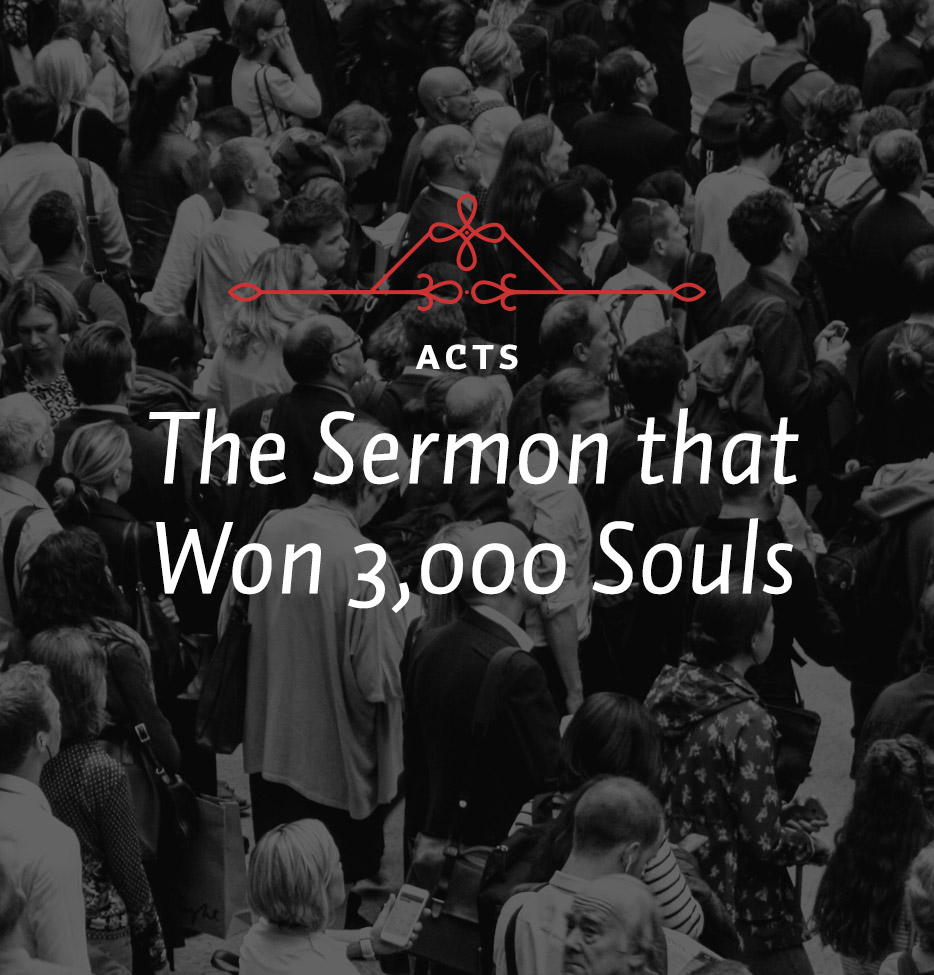In today’s study we look at the three texts of Peter’s sermon.
1. Joel 2:28-32. Joel was written on the occasion of a disaster that had come upon Israel. There had been a locust invasion, and the plague had destroyed every green thing in the land. In a rural, agricultural economy, this destruction was an extremely serious thing. It was a matter of life and death for most people. So Joel talks about it. But instead of saying, as some of us might say under those circumstances, “Well, every cloud has a silver lining. Things will get better. Don’t worry about it,” Joel actually says, “As a matter of fact, things are going to get worse. Judgment by locusts is only a foretaste of a greater, final judgment to come.”
In the middle of this very gloomy book Joel talks about a blessing that is to come in the latter days. He says, “God is going to restore the years that the locusts have eaten. There is going to be a time when God blesses you so that you will be satisfied.” It is at this turn in the prophecy, as Joel begins to speak comforting words, that the verses that became Peter’s first text on Pentecost occur. He quotes God as saying, “And afterward, I will pour out my Spirit on all people. Your sons and daughters will prophesy, your old men will dream dreams, your young men will see visions. Even on my servants, both men and women, I will pour out my Spirit in those days, and they will prophesy” (vv. 17-18; cf. Joel 2:28-29).
Peter referred to this text first because it was the clearest and most obvious Old Testament prophecy of the outpouring of the Holy Spirit. Then, with marvelous clarity and urgency, he linked it to what everyone in Jerusalem was noting: namely, the clear, powerful proclamation of the Gospel of Jesus Christ to everyone in his own her own tongue. “This is what was spoken by the prophet Joel,” was Peter’s contention. “What is happening now is what Joel prophesied.”
2. Psalm 16:8-11. Peter then repeated his procedure, reviewing what everyone knew of the ministry of Jesus and then explaining it on the basis of a second great text. These verses were important to the early Christian preachers, the Apostle Paul also referring to them on at least one occasion (Acts 13:35). This is because although they were written by David and contain statements that apply quite literally to him, toward the end of the Psalm, in words that could not apply to David, they found that great king of Israel writing, “You will not abandon me to the grave, nor will you let your Holy One see decay” (v. 27).
This is about the decay of a body in a tomb which, it is said, will not happen. But how could David say that about himself? David’s body did see decay and, as Peter points out, “His tomb is here to this day” (v. 29). Any person who doubted it could walk over to the tomb and dig up his bones. What was David talking about then when he said, “You will not… let your Holy One see decay”? Peter pointed out—and the other early preachers did as well—that at this point David must have been speaking as a prophet, looking ahead to the Messiah who, because He would be God and not a mere man like David, would not see decay. He would die, but His body would be preserved and would be raised incorruptible.
3. Psalm 110:1. This was also a popular text with the early Gospel preachers. We know this because it is the verse of the Old Testament most quoted in the New. It is quoted or referred to indirectly about 25 or 30 times. The Book of Hebrews alone refers to it at least three times directly and several other times indirectly.
“The Lord said to my Lord: ‘Sit at my right hand until I make your enemies a footstool for your feet’” (vv. 34-35).
It is easy to see why this verse was so important. In Hebrew the first word for “Lord” is Jehovah. It refers to the one great God of Israel. The second word for “Lord” is “Adonai.” It refers to an individual greater than the speaker. So here is a case of David citing a word of God in which God tells another personage, who is greater than David, being David’s Lord, to sit at His right hand until He makes His enemies a footstool for His feet. This other personage could be nothing other than a divine Messiah.
Jesus referred to this in an incident recorded in Matthew 22, saying, “How could David refer to a mere human descendant of his as his Lord?” If the Messiah were to be a mere human descendant of David, a mere human being, that form of address is improper. But the Messiah was to be no mere man. He was to be more than that. He was to be the God-man, the one the Father would exalt above every being in heaven and on earth, giving Him a name that is above every name and allowing Him to sit at His right hand until he should make all His enemies subservient. This text, as Peter rightly saw, refers to Jesus and to Him only.






